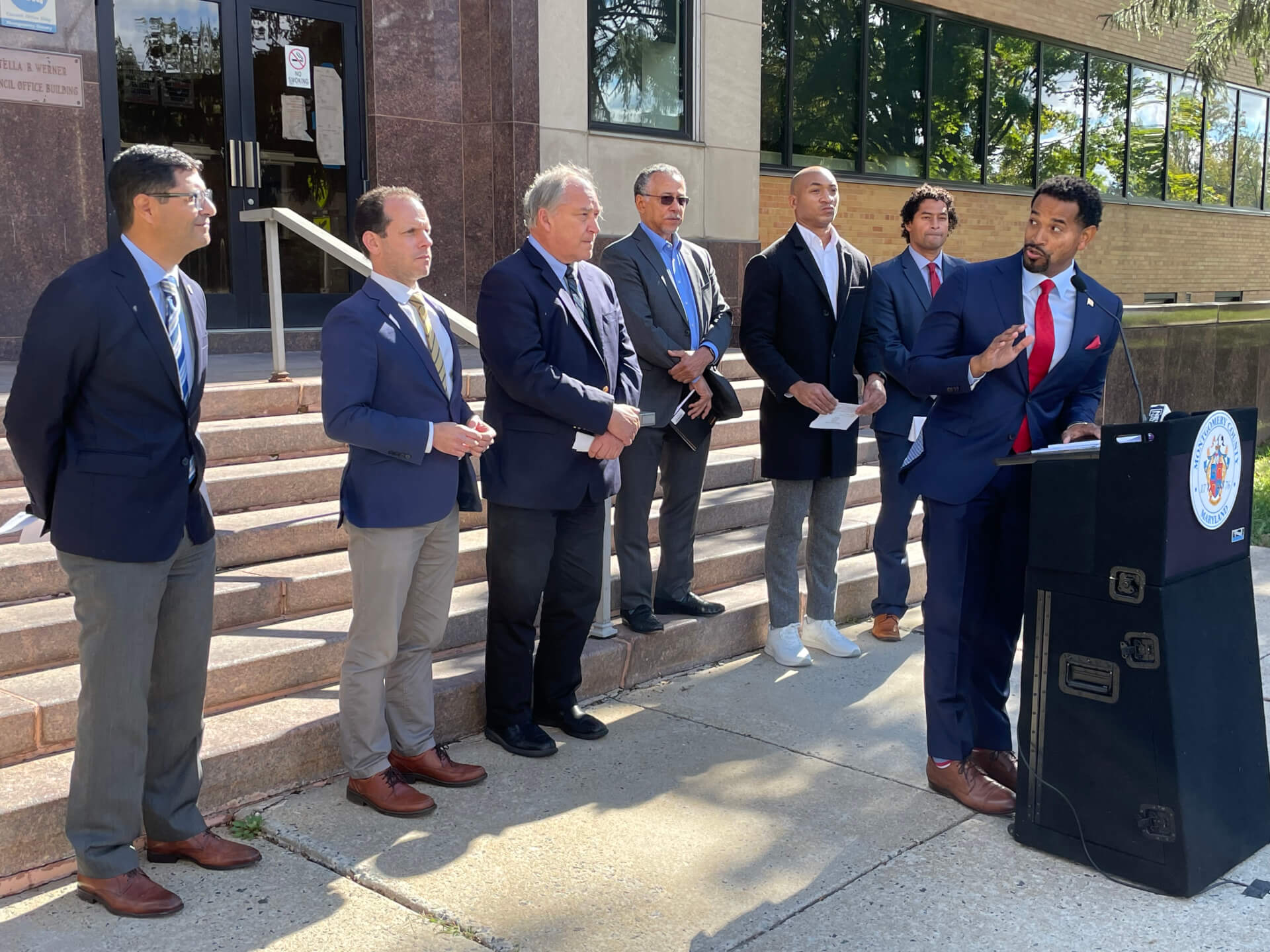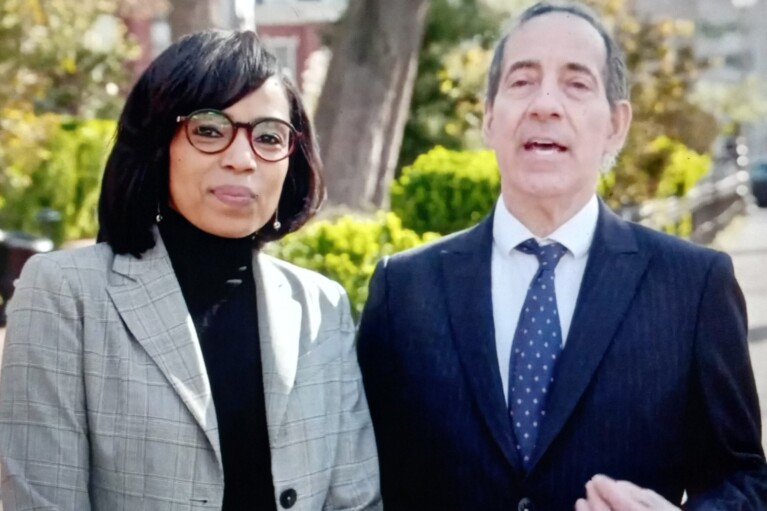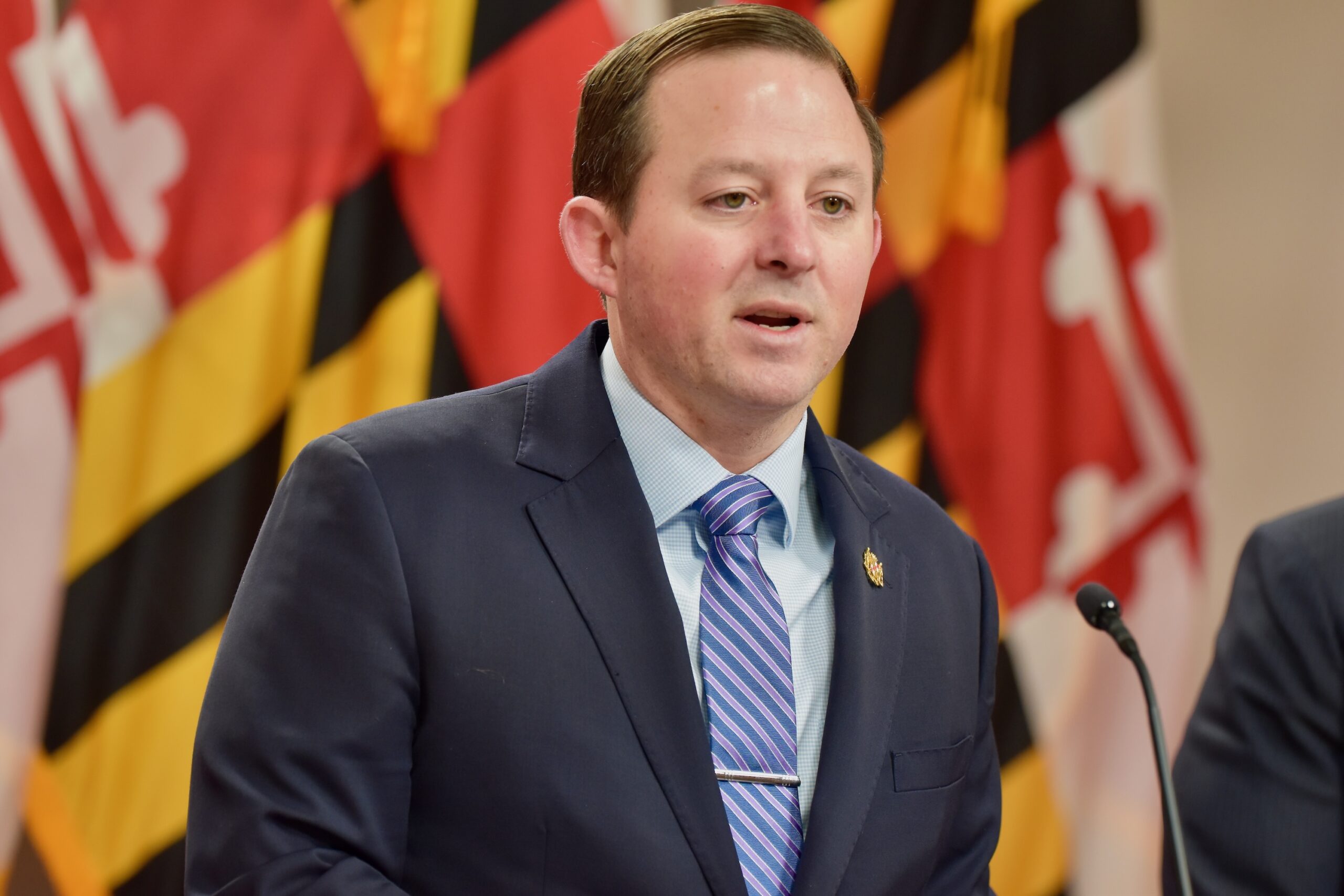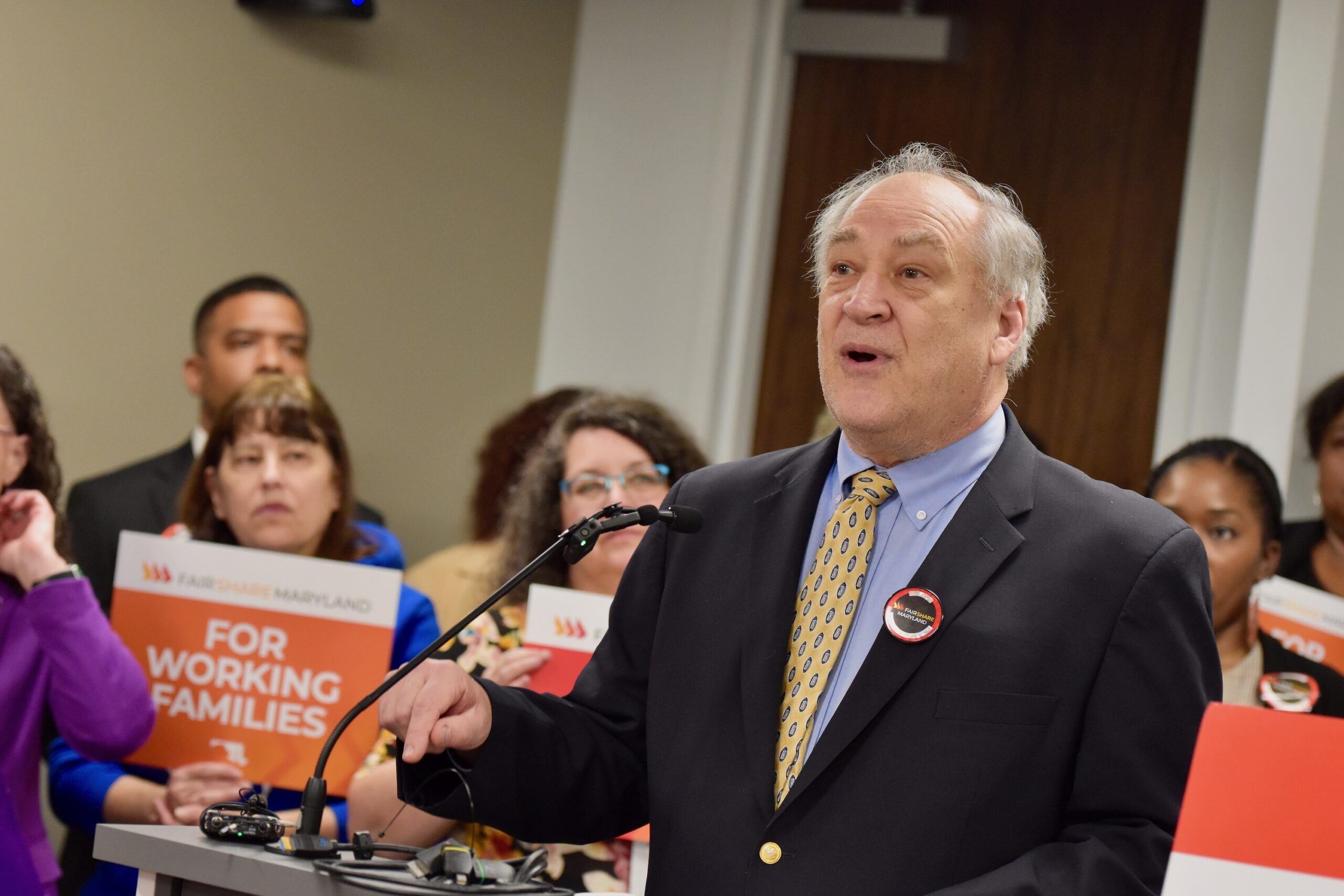Montgomery May Test “Guaranteed Income” Program Starting in 2022

Montgomery County Executive Marc B. Elrich said on Tuesday he has long wondered what would happen if — in lieu of government programs — the county just gave money directly to the people they were hoping to help.
That question is at the heart of an experiment that Montgomery may start next year, in tandem with a local philanthropy.
The Guaranteed Income Pilot Program would give $800 per month in direct payments to 300 targeted families for two years. Investigators at the Universities of Shady Grove would then track the results, to determine what impact the money had on the families’ finances — and on their physical and mental health.
Several members of the County Council, Elrich (D) and representatives from the county’s non-profit partners — including the Meyer Foundation — announced the initiative at a press conference in Rockville.
The effort is being led by Councilmembers Will Jawando (D) and Gabe Albornoz (D), and it is modeled on similar programs that have been tested elsewhere.
“We’ve seen time and time again that investments like this really make a difference,” said Albornoz. “This investment at the local level expands on what we know works.”
“It represents a paradigm shift in innovation,” he added.
If adopted, the program would be the first of its kind in Maryland.
Families would not be able to apply for the payments, officials said. Rather, the county will select 300 families with whom they have already had contact, including many of those who sought support services during the pandemic.
One-third of the families would be chosen because they have had some experience with homelessness.
Elrich, a former elementary school teacher, said he has seen many children struggle emotionally — and have trouble in the classroom — because of hunger, housing insecurity and financial stress at home.
“This is one of those opportunities to see what happens when you actually put these dollars directly into the hands of the people who are going to spend the money,” he told reporters.
The program is expected to cost $3 million per year, most of it — $2.88 million — consisting of direct payments to chosen families.
Elrich has pledged to support both years of funding.
The Meyer Foundation, a Washington, D.C.-based philanthropy, will provide $1 million. The rest, $5 million, will come from the county’s general fund.
Guaranteed income programs have been touted as a potential offset to the expected rise in automation — to make sure people whose jobs are eliminated by technology have enough to make ends meet.
Others see them as a new way of looking at support for families that are struggling to make ends meet.
Unlike traditional aid programs — which often exclude those with recent arrest records or place limitations on how support payments can be spent — guaranteed income programs do not.
The Montgomery pilot is being modeled after a program called the Stockton Economic Empowerment Demonstration (SEED). That effort, launched in 2019, gave $500 per month to 125 residents of that California city for two years.
“The cash was unconditional, with no strings attached and no work requirements,” according to the city.
A Stockton analysis cast the program as a success:
- Recipients were less likely to face “income volatility.”
- Payments “enabled recipients to find full-time employment.”
- “Recipients of guaranteed income were healthier, showing less depression and anxiety and enhanced well-being.”
- “The guaranteed income alleviated financial scarcity creating new opportunities for self-determination, choice, goal-setting, and risk-taking.”
Critics argue that guaranteed income programs create a disincentive to work. They note that many employers are having difficulty finding workers.
But backers say the pandemic illuminated the struggles that many families have long faced, particularly in communities where the cost of living is high.
“We treat poverty in this country as a character flaw. We treat economic hardship as a character flaw and as a lack of intelligence and capacity,” said Raymond Crowel, director of the Montgomery County Department of Health and Human Services. “It is none of that. It is about the lack of resources.”
Supporters of the proposal say they will seek other philanthropies to back the program.
The Council, whose members are all Democrats, is scheduled to hold a hearing on the proposal next Tuesday.




 Creative Commons Attribution
Creative Commons Attribution